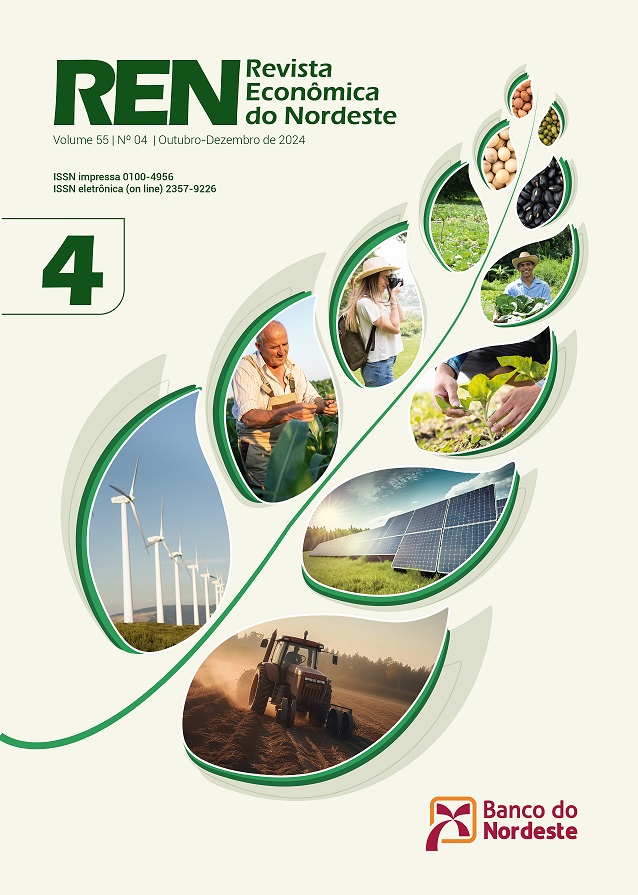CLIMATE CHANGES AND TOURISM: AN ESTIMATE OF THE IMPACT ON THE ECONOMY OF SALVADOR (BA)
DOI:
https://doi.org/10.61673/ren.2024.1588Keywords:
Economic loss, Climate risk, TERM, Computable General Equilibrium.Abstract
The Study aimed to project the economic impacts arising from climate change on tourist activity in the municipality of Salvador (Bahia). To this end, an inter-regional Computable General Equilibrium (CGE) model with recursive dynamics was used, developed for the analysis of the Brazilian economy and regionalized exclusively for the purposes of this research, whose theoretical structure follows the TERM model developed by the Center of Policy Studies from Australia, and which was called TERM - Salvador. The simulations were translated as a decrease in demand for tourist services (tourist flow x tourist expenditure), simulated through climate impact chains constructed based on the theoretical framework contained in the 5th Assessment Report (AR5) of the IPCC and the Risk Supplement to Vulnerability Sourcebook of the German International Cooperation Agency for Sustainable Development (GIZ). We worked with two scenarios relating to the existence or not of adaptive capabilities in the destination, for the time horizons of 2030, 2050 and 2100. In both cases and in all projected years, the losses verified are significant, reaching R$3 billion in the year 2030, R$11 billion in 2050 and R$40 billion in 2100, totaling R$1.4 trillion if the accumulated result for the entire period is considered.Downloads
Download data is not yet available.
Downloads
Published
2024-10-31
How to Cite
Souza, G. C. P. de, Lopes, T. H. C. R., Pinheiro, T. C., Tridello, V., & Spinola, C. de A. (2024). CLIMATE CHANGES AND TOURISM: AN ESTIMATE OF THE IMPACT ON THE ECONOMY OF SALVADOR (BA). Revista Econômica Do Nordeste, 55(4), 107–122. https://doi.org/10.61673/ren.2024.1588
Issue
Section
Artigos
License
Copyright (c) 2023 Revista Econômica do Nordeste

This work is licensed under a Creative Commons Attribution 4.0 International License.








